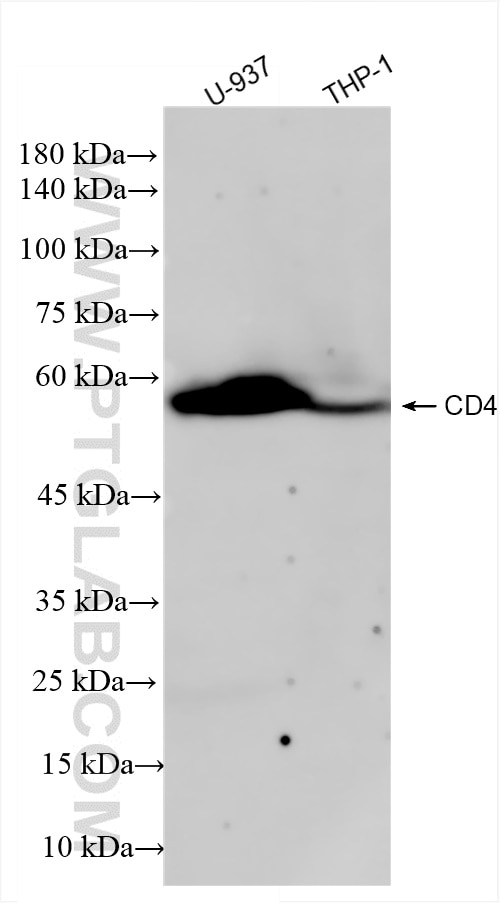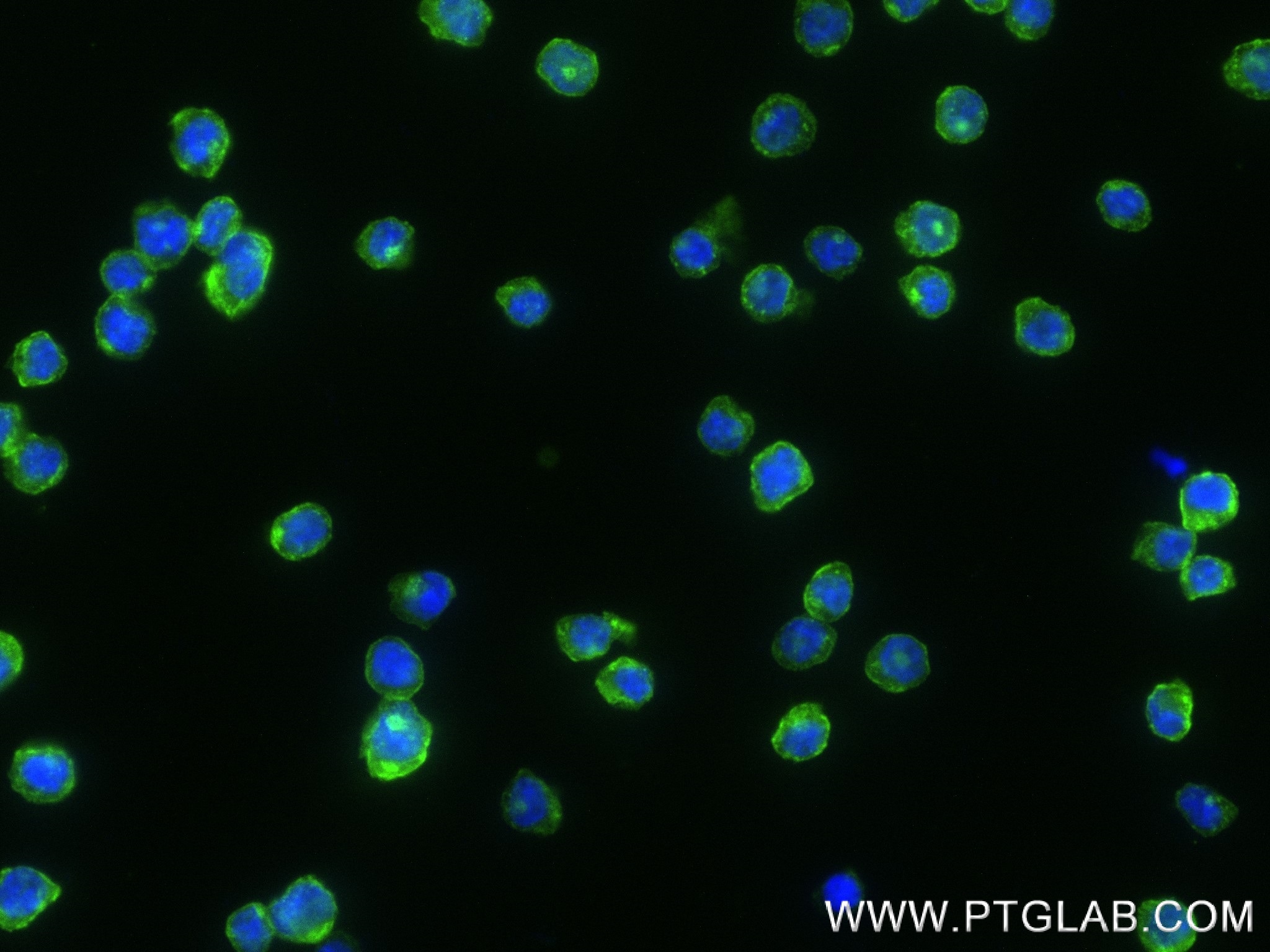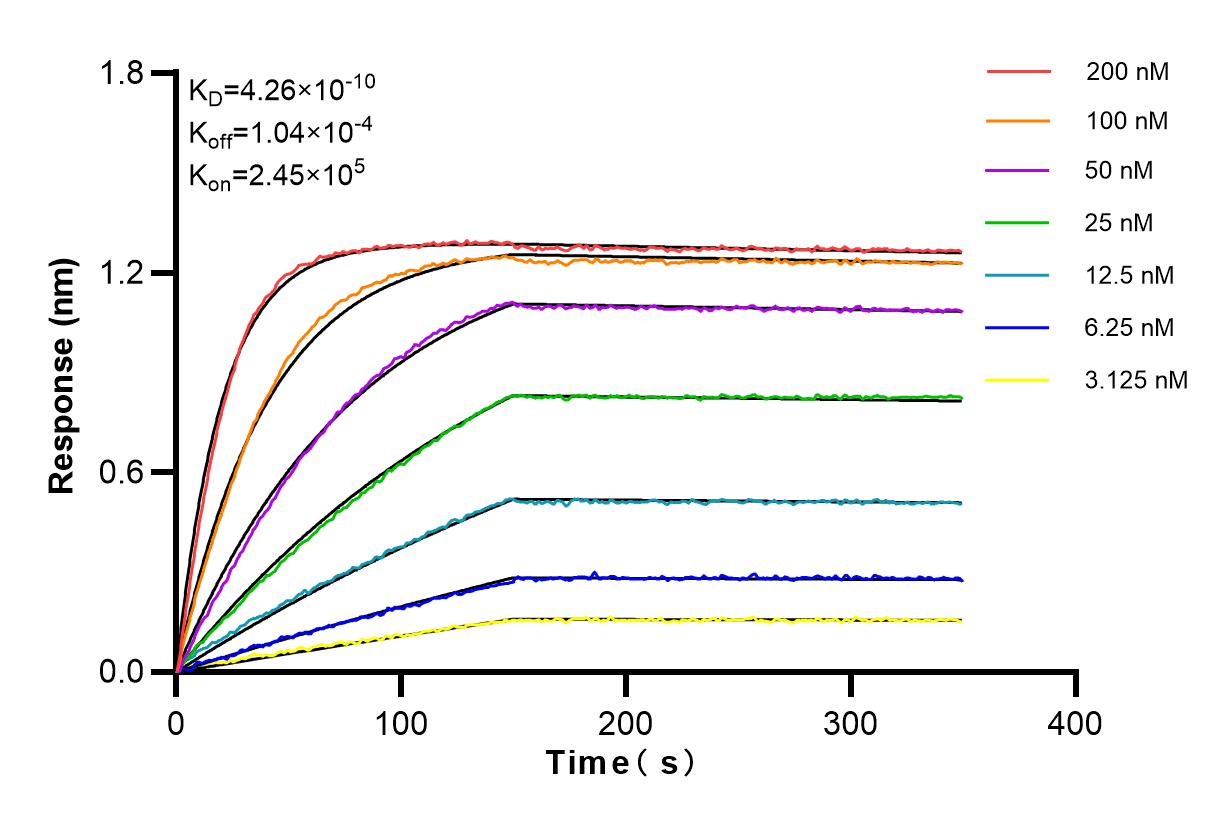Validation Data Gallery
Tested Applications
| Positive WB detected in | U-937 cells, THP-1 cells |
| Positive IF/ICC detected in | THP-1 cells |
Recommended dilution
| Application | Dilution |
|---|---|
| Western Blot (WB) | WB : 1:1000-1:4000 |
| Immunofluorescence (IF)/ICC | IF/ICC : 1:125-1:500 |
| It is recommended that this reagent should be titrated in each testing system to obtain optimal results. | |
| Sample-dependent, Check data in validation data gallery. | |
Published Applications
| IF | See 1 publications below |
Product Information
83513-7-RR targets CD4 in WB, IF/ICC, ELISA applications and shows reactivity with Human samples.
| Tested Reactivity | Human |
| Cited Reactivity | human |
| Host / Isotype | Rabbit / IgG |
| Class | Recombinant |
| Type | Antibody |
| Immunogen | Fusion Protein 相同性解析による交差性が予測される生物種 |
| Full Name | CD4 molecule |
| Calculated molecular weight | 55 kDa |
| Observed molecular weight | 55 kDa |
| GenBank accession number | BC025782 |
| Gene Symbol | CD4 |
| Gene ID (NCBI) | 920 |
| ENSEMBL Gene ID | ENSG00000010610 |
| RRID | AB_3671138 |
| Conjugate | Unconjugated |
| Form | Liquid |
| Purification Method | Protein A purfication |
| UNIPROT ID | P01730 |
| Storage Buffer | PBS with 0.02% sodium azide and 50% glycerol , pH 7.3 |
| Storage Conditions | Store at -20°C. Stable for one year after shipment. Aliquoting is unnecessary for -20oC storage. |
Background Information
CD4 is a 55-kDa transmembrane glycoprotein expressed on T helper cells, the majority of thymocytes, monocytes, macrophages, and dendritic cells (PMID: 9304802; 12213222). CD4 is an accessory protein for MHC class-II antigen/T-cell receptor interaction. It plays an important role in T helper cell development and activation (PMID: 9539765; 3112582). CD4 serves as a receptor for the human immunodeficiency virus (HIV) (PMID: 9304802).
Protocols
| Product Specific Protocols | |
|---|---|
| WB protocol for CD4 antibody 83513-7-RR | Download protocol |
| IF protocol for CD4 antibody 83513-7-RR | Download protocol |
| Standard Protocols | |
|---|---|
| Click here to view our Standard Protocols |
Publications
| Species | Application | Title |
|---|---|---|
J Transl Med Tumor microenvironment remodeling after neoadjuvant chemoradiotherapy in local advanced rectal cancer revealed by single-cell RNA sequencing |


